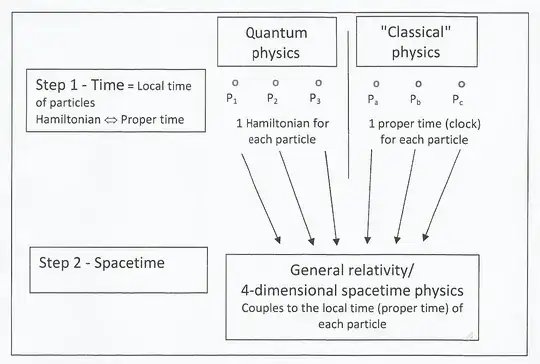Quantum mechanics has an absolute time concept, and general relativity has the dynamic time concept of spacetime. The incompatibility of both concepts is called the problem of time in quantum gravity.
Yes, but that Wikipedia article needs attention from an expert. It says "therefore, we arrive at the conclusion that 'nothing moves' ('there is no time') in general relativity". Only we don't. Take a look at the Einstein digital papers and search on equations of motion. There's 94 hits. Einstein didn't come up the notion that nothing moves. This has come from somebody else. Probably somebody who doesn't understand the difference between space and spacetime. See Ben Crowell's answer here: "Objects don't move through spacetime. Objects move through space. If you depict an object in spacetime, you have a world-line. The world-line doesn't move through spacetime, it simply extends across spacetime". In other words, spacetime is the map, space is the territory, and the map is not the territory.
But there is also an absolute time concept in general relativity: Proper time as the invariant spacetime interval ds is the time evolution of an individual particle. It refers to the particle's clock, comparable with the Hamiltonian in quantum mechanics which is referring to the time
It's just the cumulative measure of the local motion inside the clock. Or the particle if you prefer. The wave nature of matter means the local motion plus the macroscopic motion adds up to c, hence SR time dilation. GR time dilation is where the "coordinate" speed of light is reduced. See Einstein talking about that here.
Processes moving at light speed (gravitational waves, electromagnetic waves etc.) are not concerned because their proper time is zero.
Yes. The local motion is zero because the total motion cannot exceed the speed of light.
Is there a particular reason why quantum gravity does only consider dynamic spacetime but not the absolute time concept of proper time?
I can't answer that I'm afraid. But see Matt Strassler's article: "a virtual particle is not a particle at all". Electrons and protons don't throw photons at one another. Hydrogen atoms don't twinkle. Virtual photons aren't short-lived real photons popping in and out of existence like magic. Instead they're "field quanta". It's like dividing an electromagnetic field into chunks and saying each is a virtual photon. Then when the electron and the proton attract one another, they exchange field, such that the resultant hydrogen atom doesn't have much of an electromagnetic field left. However when two hydrogen atoms attract each other gravitationally, they don't exchange field. Instead the two fields are additive. So the exchange concept doesn't work.
With the following sketch I am trying to describe the possible relationship between quantum physics and general relativity - they are not directly opposed.
I don't think they are. IMHO the real problem is that people don't appreciate that the photon has a non-zero "active gravitational mass". Or that according to Einstein a field is a state of space. How many states of space are there where an electron is? One. That means the virtual photon is in some respects a virtual graviton too.
